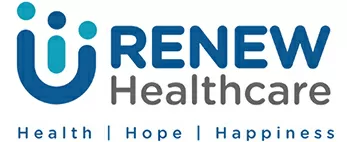
Have you ever felt like your fertility was a ticking time bomb? The pressure to conceive by a certain age can overwhelm many women.
The numbers speak for themselves – A female fetus has about 6 to 7 million eggs halfway through pregnancy, which drops to 1 to 2 million at birth. In her 30s, a woman has around 120,000 eggs. Her ability to get pregnant starts to decrease at age 32, and by age 37, she has about 25,000 eggs left. The number of eggs keeps going down until menopause when fewer than 1,000 remain.
But what if you could press pause on your biological clock? Fertility preservation offers just that possibility: a chance to take control of your reproductive future.
One of the most popular and effective methods is egg freezing, also known as oocyte cryopreservation. Here, a woman’s eggs (oocytes) are frozen for future use in assisted reproductive technologies (ART), such as in vitro fertilisation (IVF). This allows women to delay pregnancy for personal or medical reasons while preserving their fertility potential.
Our fertility specialists at Renew Healthcare encounter patients with misconceptions about oocyte freezing all the time, which causes a lot of unnecessary worry for women considering this option. So, let’s separate fact from fiction, shall we?
Myths vs. Facts
Myth: Egg freezing is a new and experimental procedure.
Fact: Egg freezing has been around for over 30 years, and the technology has become remarkably successful. In fact, the first baby born from frozen eggs was born in 1986.
Myth: Freezing your eggs damages your natural fertility.
Fact: Not true! Your ovaries contain many eggs at birth, but only a few mature and ovulate over your lifetime. Egg freezing simply retrieves some of those immature eggs before they ovulate. It doesn’t affect your remaining supply or future chances of conceiving naturally.
Myth: Only women in their 30s should consider egg freezing.
Fact: While your fertility naturally declines with age, egg freezing is a great option for women of any age who want to preserve their options.
It benefits women who wish to delay childbearing due to career goals, those undergoing medical treatments that could impact fertility (e.g., cancer treatment), or women with a family history of early menopause. However, the quality and quantity of eggs retrieved are highest in your late 20s and early 30s, so if you’re considering it, don’t wait too long!

Source: https://www.medicalnewstoday.com/articles/how-many-eggs-does-a-woman-have
Myth: Frozen eggs are less likely to result in a healthy pregnancy.
Fact: Not at all! Studies show that pregnancy success rates using frozen eggs are similar to those using fresh eggs.
Myth: Egg freezing guarantees you’ll get pregnant later.
Fact: While egg freezing offers a valuable tool for preserving fertility, success rates depend on several factors, primarily age and the number of eggs frozen.
Younger women with more eggs have a better chance of achieving pregnancy using frozen eggs. A new study shows a 31% jump in pregnancy rates for women who freeze their eggs before 38 and thaw a larger number (more than 20).
Myth: Egg freezing is prohibitively expensive for most people
Fact: The cost of egg freezing in India varies depending on the medication and the number of eggs retrieved. Renew Healthcare offers transparent pricing and can discuss potential insurance coverage options and financial planning strategies.
Myth: The procedure for freezing eggs is painful and highly invasive
Fact: Egg retrieval is a minimally invasive procedure performed under sedation or light anaesthesia, minimising discomfort. Pain management techniques are employed to ensure your comfort. Let’s find out more about how this is done.
The Process of Oocyte Freezing at Renew Healthcare:
While egg retrieval is a common step in both IVF (In Vitro Fertilization) and some IUI (Intrauterine Insemination) procedures, the retrieved eggs are used differently in each treatment.
Feeling overwhelmed by fertility options? Read our blog to find the right treatment path for you.
Practical Considerations
Optimal Timing for Oocyte Freezing Age is a significant factor. Generally, the earlier you freeze your eggs, the better the quality and quantity. However, a fertility specialist at Renew Healthcare can assess your situation and advise on the optimal timing.
Choosing the Right Clinic: Selecting a reputable clinic with experienced professionals and high success rates is crucial. Renew Healthcare is committed to providing personalised care and utilises advanced technologies to maximise your chances of success.
Preparing for the Procedure: Certain lifestyle adjustments, like maintaining a healthy weight and avoiding smoking, can optimise the process.
FAQs
What are the long-term health effects of egg freezing?
There is no evidence of long-term health risks associated with egg freezing.
How many eggs should I freeze?
The ideal number varies depending on your age and desired family size. A consultation with a Renew Healthcare specialist can help you determine the optimal number.
What is the success rate of using frozen eggs for pregnancy?
Success rates depend on several factors, but younger women with more frozen eggs generally have a higher chance. Our clinic can provide you with our specific success rates during your consultation.
Can I use frozen eggs with donor sperm?
Absolutely. Egg freezing can be combined with sperm donation to achieve pregnancy.
What happens if I decide not to use my frozen eggs?
You can thaw and discard your eggs, donate them for research purposes, or give them to another individual or couple.
Conclusion
Informed decision-making is crucial when considering egg freezing. We encourage you to research thoroughly and discuss your options with a healthcare provider.
The fertility specialists at Renew Healthcare are here to answer your questions, address your concerns, and create a personalised plan to help you achieve your family-building goals.
Schedule a Consultation Today!
Renew Healthcare offers a no-obligation consultation to discuss your fertility goals and explore if egg freezing is right for you. Contact us today to take the first step towards securing your reproductive future.
Key Takeaways:
